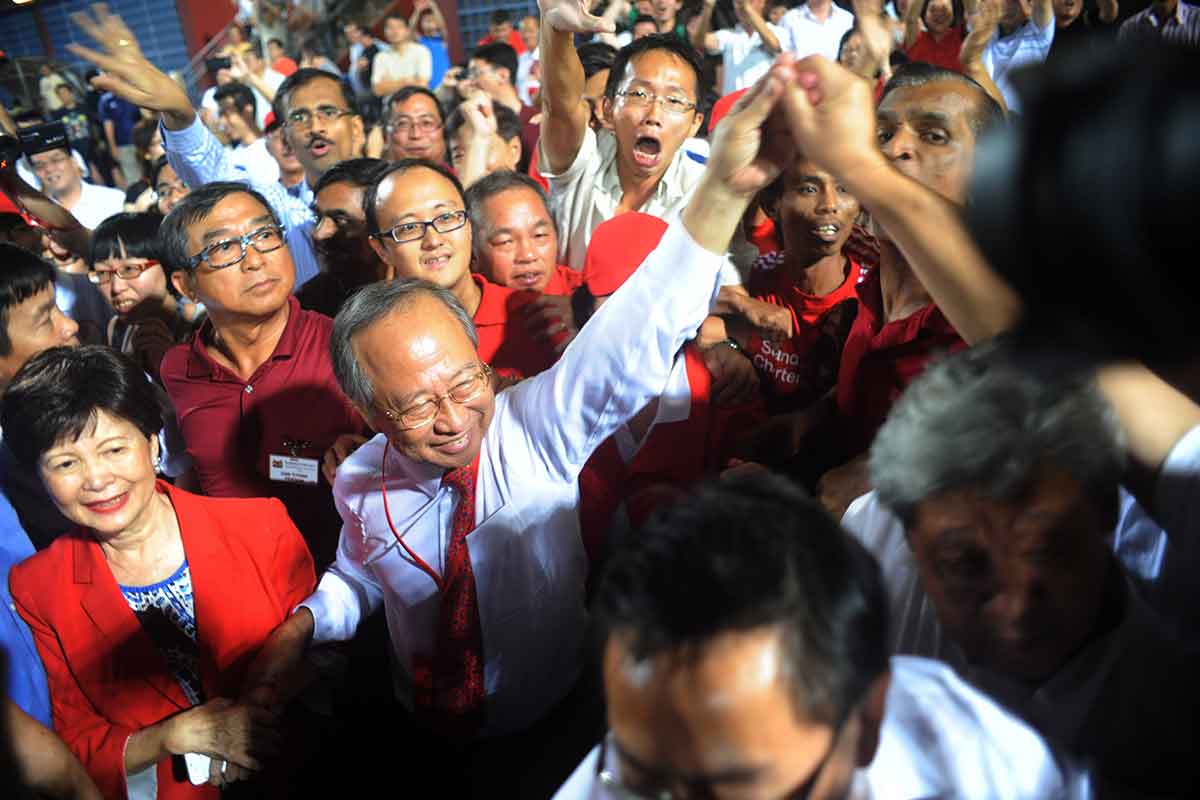Former members of Singapore’s ruling party are banding together to form a new opposition group as general elections loom, presenting a new challenge to Prime Minister Lee Hsien Loong’s government as it prepares for leadership succession.
Tan Cheng Bock, who vied to be the president eight years ago, is leading a group of 12 Singaporeans who registered this week to form the Progress Singapore Party, he said in a statement Friday. While deciding against joining existing parties, he said they are open to working with other opposition groups in parliament if the application is approved.
“We held group discussions and conversations with many, listening to their concerns, hearing their fears and feeling their pain,” said Tan, 78. “We felt a sense of duty to come forward and help address the issues in a more formal setting like Parliament.”
Elections must be held by 2021, and Lee has said going to the ballot boxes this year is “always possible” as the country celebrates the 200th year of its modern founding. The ruling People’s Action Party, or PAP, in November picked Finance Minister Heng Swee Keat as Lee’s de facto successor, kicking off Singapore’s third leadership transition in its 53-year history.
Fragmented opposition
Tan’s experience in the PAP – where he was a lawmaker for more than two decades – could help him "build up his base rather quickly as long as he does not have too many controversial characters in his founding circle," said Gillian Koh, deputy director of research at the Institute of Policy Studies in Singapore.
In 2011, Tan lost the race to be the city-state’s president to former deputy prime minister, Tony Tan, by a margin of about 0.3 percent. He wasn’t eligible to run in 2017 after the government changed the presidential election process to ensure the largely ceremonial role isn’t dominated by the majority Chinese group.
Singapore’s president has the responsibility of safeguarding the national reserves and is given veto rights on government budgets and key appointments to public office.
Unifying figure
Tan is presented as a "Unifying Figure for Singapore" in his Facebook cover photo. In November, he caused a stir when he shared a post of himself having breakfast with Lee’s younger brother, Lee Hsien Yang, saying they discussed topics including the "current state of politics in Singapore." The premier has been embroiled in a public spat with his brother and sister, in part over the fate of the house that belonged to their late father and the country’s first prime minister, Lee Kuan Yew.
"The key thing is to watch for how the other opposition political parties respond to this development and what it means for political development in Singapore," said Koh. "The opposition space is highly fragmented."
In 2015, the PAP boosted its share of the popular vote to 69.9 percent and took 83 out of 89 parliamentary seats in an election where it had faced competition in every district for the first time. As it prepares for the next one, the party is confronting an economy that is projected to slow this year as US-China tensions hit the trade-reliant nation.
Lee said in a speech in August that many Singaporeans still feel their incomes aren’t sufficient to cope with higher costs, even though the economy is doing well, unemployment is relatively low and wages have increased. The government is planning to spend more on areas including health care and housing to ensure they remain affordable, he said.
“There is no compelling reason why the Singapore parliament, a robust institution, cannot become a bigger tent, accommodating and seriously debating as many alternative and even oppositional perspectives as possible," said Kenneth Tan, an associate professor at the Lee Kuan Yew School of Public Policy in Singapore. "This is one way of building trust and keeping political leaders on their toes.” - Bloomberg
